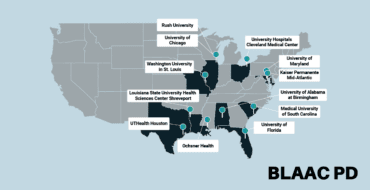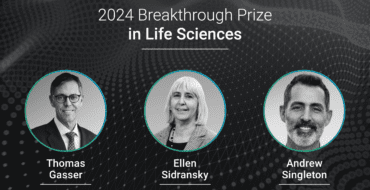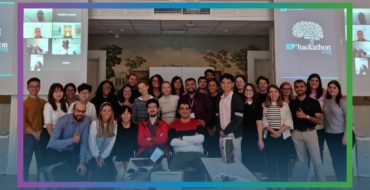A Blueprint for Training and Development in GP2

At the heart of GP2 is the creation of a resource that will benefit the global Parkinson’s disease (PD) research community in its quest to improve understanding and find better treatments. As the first project funded by Aligning Science Across Parkinson’s (ASAP), we aim to uphold the guiding principles of open science and data accessibility. These aren’t simply hopes, but goals requiring active promotion and measurement of success.
Training is a vital element of GP2. So much so, a working group is dedicated to Training, Networking, and Communication (TNC for short). Our group’s remit is wide-ranging, and our eight members cover the breadth of scientific disciplines related to PD research, patient advocacy, and communication. We liaise closely with the working group dedicated to patients and researchers who have been under-represented in PD research, helping to ensure that our work has the broadest application.
The best-laid plans…
When GP2 began in January 2020, we divided our training plans broadly into ‘training groups’ and ‘training individuals’ to achieve a balance of breadth and impact.
- For groups, we planned to produce one online course per year for the first three years of the project: genetics, bioinformatics, and a clinical course.
- For individuals, we aimed to cover the appointment of three to four PhD students in the first two years of the project and up to 20 training sabbaticals. The latter would involve clinicians or scientists travelling to spend a few months with a research group with particular expertise, in order to learn skills to use in their home country.
Then COVID-19 struck. We were forced to redesign our plans completely. With little prospect of sending clinicians and researchers around the world to learn new skills, we had to concentrate on bringing the skills to them.
Shifting our focus
Between April and June, we developed our first online training course Beginner Bioinformatics for PD genetics. The course offers a basic and practical introduction to the types of analysis we hope people will be doing with GP2 genetics data, along with an introduction to accessing data and running analyses using the Terra platform.
Over the next four months, we will release two further courses: Parkinson’s disease Genetics for Non-Geneticists and A Basic Introduction to Medical Statistics. Training materials will initially be available in English, though we will review the need for translated content as we continue to develop courses.
We also advertised the first GP2 PhD studentship in August. The recipient will be starting their research training by the end of the year, and future PhD and sabbatical opportunities are planned.
Building a network
Training is only one aspect of our work in the TNC group. As a resource project, GP2 must reach the maximum number of stakeholders worldwide, whether these are clinicians, scientists, patients, or the general public. As such, networking and communications are just as important as training.
Over the first six months of GP2, we have worked closely with ASAP to develop the GP2 website and launch it in two phases. The website is essential – it enables clinicians and researchers around the world to connect with and participate in GP2. It also provides the structure to deliver our online training, advertise individual training opportunities, and host the GP2 blog, which will be a regular source of news and updates from the project and the wider field.
Looking ahead
As GP2 gains momentum, we will support the growing network of trainees and researchers from around the world who are contributing to its success through providing samples or genetic data, or analysing data to develop new insights into our understanding of PD.
Even if 2021 throws us as many surprises as 2020 has, we’ll remain adaptable and enthusiastic about facilitating training and growing the network, with an unwavering focus on inclusivity and providing opportunities. Watch this space to hear more about our courses, sabbaticals, and PhD studentships.




